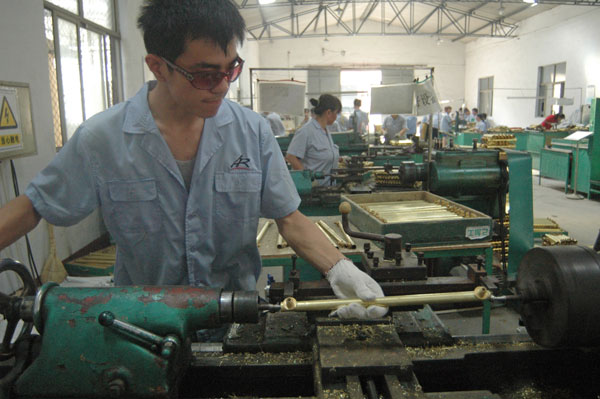Abe remains ambiguous on WWII statement as keywords urged to be included
Updated: 2015-08-12 09:26
(Xinhua)
|
|||||||||||
Former prime minister Tomiichi Murayama has urged Abe to apologize for Japan's wartime barbarities in his speech, so as to mend frayed ties with China and South Korea by dispelling their anxieties and suspicions over current historical revisionism in Japanese politics.
The landmark Murayama Statement gained world recognition because the then Japanese premier clearly stated in his 1995 statement that he felt deep remorse and offered a heartfelt apology for Japan's colonial rule and aggression. Former Prime Minister Junichiro Koizumi repeated such expressions in his statement in 2005 on the 60th anniversary of the end of WWII.
"Murayama expressed remorse and apologies for Japan's colonial rule and aggression. Abe may revise it by keeping the words but by breaking the logic," said Koichi Nakano, a professor of political science at the Sophia University, referring to a story on the issue by Japan's public broadcaster NHK Monday.
The professor said on his Twitter Monday that the context is important to judge whether or not the prime minister follows the previous governments' statements.
Japan's two closest neighbors, China and South Korea, urged Abe to face up to its wartime past and clearly uphold statements issued by previous governments.
South Korean President Park Geun-hye said Monday that she hopes "the Japanese government clarifies that it is upholding the historical perception of past governments and shows a mature attitude to newly start relations with neighboring countries."
"China and other Asian countries as well as the world are watching the Japanese leader's upcoming speech closely," Chinese Foreign Ministry spokeswoman Hua Chunying said Friday, urging Japan to "send a clear and correct message on the nature of the war and Japan's wartime responsibility."
Related Stories
Admission of past aggression can help Abe reconcile with neighbors 2015-08-12 07:45
Abe has historic chance to seize 2015-08-11 08:01
Statement by Abe to offer an 'apology' 2015-08-11 07:57
Today's Top News
China's yuan weakens most in two decades after central bank reform
Greece and lenders agree on
bailout terms
Attacks kill 9 at US consulate
in Turkey
To boost tourism, consumption, govt suggests longer weekend
Greece, lenders in stretch run to to seal new bailout
State Council approves plan to overhaul SOEs, claims report
Amazing China 2015 photo contest unveiled in Beijing
China's HK CTS Metropark buys Kew Green, manager of Brighton's Grand Hotel
Hot Topics
Lunar probe , China growth forecasts, Emission rules get tougher, China seen through 'colored lens', International board,
Editor's Picks

|

|

|

|

|

|






